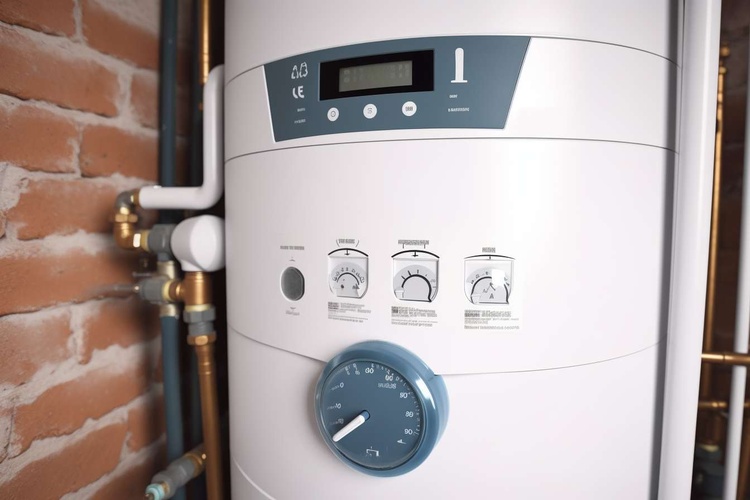Who Is Eligible for Boiler Replacement Grants?
Learn who qualifies for boiler replacement grants and how you can benefit from energy-efficient upgrades. Find out the requirements for claiming these grants and how they can help reduce your energy costs. Explore all the details in this comprehensive guide!

Boiler replacement grants represent a significant opportunity for homeowners to upgrade their heating systems while reducing both energy costs and environmental impact. These programs, offered by government agencies and utility companies, provide financial assistance to qualifying households seeking to replace outdated or inefficient heating equipment with modern, energy-efficient alternatives.
What Are the Basic Eligibility Criteria for Boiler Replacement Grants?
Most boiler replacement grant programs establish fundamental eligibility requirements that applicants must meet. Income thresholds typically serve as the primary qualifier, with many programs targeting low to moderate-income households. Homeownership status is usually required, though some programs extend to certain rental properties with landlord participation. The age and condition of existing heating equipment often factor into eligibility, with priority given to homes with boilers over 15-20 years old or those operating below acceptable efficiency standards. Geographic location may also influence eligibility, as some programs focus on specific regions or utility service areas.
Understanding How to Apply for Boiler Replacement Grants
The application process for boiler replacement grants typically involves several documentation requirements and verification steps. Applicants generally need to provide proof of income through tax returns, pay stubs, or benefit statements. Property ownership documentation, utility bills, and energy audit reports may also be required. Many programs mandate a home energy assessment conducted by certified professionals to evaluate current heating system efficiency and determine potential energy savings. Application submission often occurs through online portals, though some programs accept paper applications or require in-person consultations with program representatives.
What Steps Are Required to Claim Energy-Efficient Grants?
Claiming energy-efficient grants involves a structured process that begins with initial eligibility screening and progresses through installation and verification phases. After application approval, participants typically receive pre-approved contractor lists or must obtain multiple quotes from certified installers. The new boiler must meet specific efficiency ratings, often requiring ENERGY STAR certification or equivalent standards. Installation scheduling and completion must occur within designated timeframes, followed by inspection and verification procedures. Grant funds may be distributed directly to contractors or reimbursed to homeowners upon project completion and final approval.
How Can Boiler Grants Help Lower Your Energy Costs?
Boiler replacement grants deliver substantial long-term energy savings by facilitating upgrades to high-efficiency heating systems. Modern boilers operate at 90-95% efficiency compared to older units that may function at only 60-70% efficiency. This improvement translates to immediate reductions in monthly heating bills, with many households experiencing 20-40% decreases in winter energy costs. Additionally, new boilers often require fewer repairs and maintenance interventions, reducing ongoing operational expenses. The combination of grant funding and energy savings creates a compelling financial benefit that continues for the equipment’s 15-20 year lifespan.
Are There Special Eligibility Routes for Vulnerable Households?
Many grant programs establish special provisions for vulnerable populations, including elderly residents, disabled individuals, and families with young children. These households may qualify for expedited processing, higher grant amounts, or relaxed income requirements. Veterans and military families often receive preferential consideration or access to dedicated funding streams. Some programs specifically target households with members who have respiratory conditions or other health issues that cold temperatures could exacerbate. Emergency replacement provisions may apply when existing heating systems fail completely, providing rapid assistance regardless of typical application timelines.
| Grant Program Type | Provider | Typical Grant Amount | Income Requirements |
|---|---|---|---|
| Weatherization Assistance | State Energy Offices | $3,000-$8,000 | 200% of Federal Poverty Level |
| LIHEAP Energy Crisis | Local Community Action | $1,500-$5,000 | 150% of Federal Poverty Level |
| Utility Rebate Programs | Local Gas/Electric Companies | $500-$2,500 | Varies by Provider |
| PACE Financing | Local Government | Up to $15,000 | Property-based, No Income Limits |
Prices, rates, or cost estimates mentioned in this article are based on the latest available information but may change over time. Independent research is advised before making financial decisions.
Boiler replacement grants provide valuable opportunities for eligible homeowners to upgrade their heating systems while reducing energy costs and environmental impact. Success in securing these grants depends on understanding specific program requirements, completing thorough application processes, and working with qualified contractors to ensure proper installation and verification. The combination of immediate financial assistance and long-term energy savings makes these programs an attractive option for households seeking to modernize their home heating systems.




